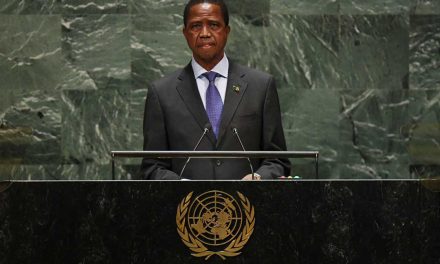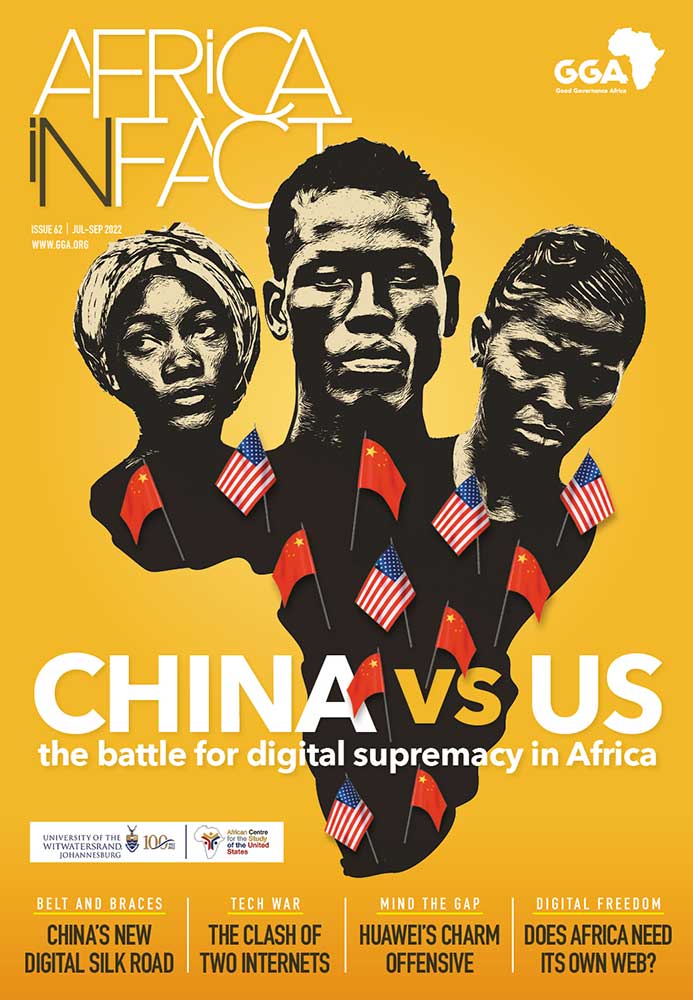China is the world’s leading emitter of greenhouse gases (GHGs), and one of the largest coal investors in Africa. China accounts for 27% of total GHGs, while the EU only accounts for 6%. Africa’s entire contribution is minimal (although South Africa’s emissions are disproportionately high). While Foreign Direct Investment (FDI) is important for both economic development and employment in Africa, it is crucial that the continent does not become a place for China to relocate its most polluting industries and export poor environmental practices.

Botswana is a case in point. As Western investors continue to shy away from funding fossil fuel projects, Botswana has turned its hopes to China to help exploit the country’s 200 billion tons of untapped coal reserves. However, as seen in neighbouring Zimbabwe, Chinese investment can have a corrosive effect on a country’s climate action ambitions and lead to intractable environmental crises.
This is especially concerning for Botswana, given the country is already highly exposed to several ecological threats and reliant on its delicate natural ecosystems for tourism revenue. An example is the Okavango Delta, a World Heritage Site which is subject to upstream river developments that may negatively impact the hydrological flow into the delta. It is also subject, most recently, to a highly negative potential impact from ReconAfrica, the Canadian oil firm drilling for oil in Namibia, just west of Botswana’s panhandle into the Delta.
Chinese investment in Africa
China has actively engaged in Africa’s development through technology, infrastructure, education, and trade. These developments occur in the form of resources-for-infrastructure deals such as coal supply in exchange for the development of roads and hospitals. While its expansion on the continent has brought much growth, the environmental impact of Chinese investments and operations remains contentious. According to a 2015 study by China expert David Shinn, China’s rapid economic growth and race for global power have come at the expense of good environmental practices.
China is presently involved in power generation and transport infrastructure projects in 35 African countries. While some of the projects are centered around hydropower, coal mining projects remain a significant part of China’s investment.
Poor natural resource governance and high levels of corruption in many African states can make it easier for unscrupulous international investors to export poor environmental practices to Africa, and can threaten climate change mitigation and adaptation efforts.
It is therefore crucial that good governance and anti-corruption initiatives are seen as an integral part of climate change action on the continent.
Botswana’s taste for coal
Botswana’s plan to build coal mines does not align with its commitment to the Paris Agreement, in which the country has committed to reducing its overall carbon emissions by 15% by 2030. Even though the country’s emissions are minimal compared to neighbouring country South Africa, Botswana is the 71st most vulnerable country to climate change, and ranks 84th of countries most ready to adapt to climate impacts. Botswana is highly dependent on rain-fed agriculture, and already experiences high rainfall and drought variability, which have an impact on agricultural production.
Securing coal financing in Africa will become an increasingly difficult endeavour, as many western countries plan to withdraw support for thermal coal power generation by the end of 2021. However, strong demand for fuel in Asian markets against tight supply offers a lucrative short-term opportunity for Chinese investors. Ironically, China is the world’s largest manufacturer of solar panels, which makes one question why it is still pursuing fossil fuel ambitions. Continued political support for fossil fuels ostensibly relies on the idea that the country should have a reliable power system, and the capacity to reserve and back up electricity generation. The subtle implication is that renewable energy sources are somehow unreliable, an assumption that no longer bears up under empirical scrutiny.
In the face of mounting international and regional pressure on China to lower its GHG emissions, there is concern that the country may seek to relocate its highest polluting industries to other parts of the world. In other words, China’s quest to surpass the world’s advanced economies will involve having to diversify their raw material sources. China’s attempt to solve the air pollution in Beijing posed a challenge for production output. Investments will be effective in reducing carbon emissions and improve air quality while maintaining a huge return an output.
Botswana must approach Chinese investment in coal mining with caution. Former president Ian Khama was very careful about inviting Chinese investment into Botswana, and meticulous in excluding those deals that could’ve jeopardised the sovereignty of Botswana. President Masisi is not nearly as vocal about deals struck by African countries with the Chinese. China’s experience with green policies is relatively low, and unchecked investments can be environmentally unfriendly and be detrimental to Botswana’s climate ambitions and future economic foundation. Tourism is Botswana’s second largest GDP contributor and damage to delicate ecosystems will have a serious negative impact on this important sector.
Botswana is already facing an adaptation deficit (limitation in the ability of poorer countries to adapt). Research also suggests that there is limited institutional capacity alongside contradictory climate policies.
Justifying the government’s decision to expand investment into coal mining, Minister of Minerals Lefoko Moagi has stated: “Make no mistake, we all subscribe to a cleaner world, but we believe that we can’t just leave an abundance of a God-given resource like that”.
This is precisely the kind of short-term thinking that Africa needs to move away from as it looks to break from cycles of international exploitation and put itself on a new positive low-carbon growth trajectory built on smart and sustainable investment decisions.
Zimbabwe – a cautionary tale
Zimbabwe offers a cautionary tale for Botswana. As a result of decreasing Western support for the ZANU-PF government, which has continued to defy international calls for democratic reform, China has been able to gain unfettered influence across multiple sectors within the Zimbabwean economy.
Zimbabwe’s coal rush is dominated by Chinese mining companies, which have been accused of violating environmental regulations with impunity. In the past few years, environmentalists and local citizens have expressed concerns of environmental pollution and deforestation caused by Chinese mining companies.
The most recent example of poor environmental practices encouraged by the Zimbabwean government is that it allowed mining in the country’s major national nature reserve, Hwange National Park (the largest national park in the country hosting the Big Five). The current mining company in the area, AfroChine, has been accused of land degradation and putting wild animals at risk. AfroChine, whose mining rights were revoked in 2020 after public outburst, received special grants this year from the president.
The accusations laid against AfroChine have led to an ongoing court battle between the company and Mines and Mining Development minister Winston Chitando.
These operations have not only created the risk of irreversible ecological degradation but exposed communities to harsh climate impacts. In the last three years, about 10 mining companies have been granted licencing rights to extract coal and venture into thermal power generation in the area.
Mining has taken priority over other pressing development challenges, and the government has failed to be transparent about coal mining grants and licences. The burden of calling for the good governance of natural resources and environmental practices has landed on local citizens, who have borne the brunt of climate change.
In July this year, the government concluded the expansion of the Hwange power station, the biggest power plant in Zimbabwe. This spells a prospective wave of new coal projects that are contradictory to Zimbabwe’s climate ambitions. Even though the Chinese have increased their support for solar power in countries like Zambia, its impact is negligible compared to that of coal power generation that the country is building elsewhere on the continent.
African countries face the prospect of maladaptation during crisis (failure to adjust adequately or appropriately to the environment or situation). Good governance is essential in responding effectively and efficiently to Chinese investments. In this respect, Botswana would be well advised to exercise serious caution against the temptation to cash in on its coal resources at the long-term expense of the country’s welfare.
Nature should be protected and not only used as a source of income – Fabrice Monteiro









